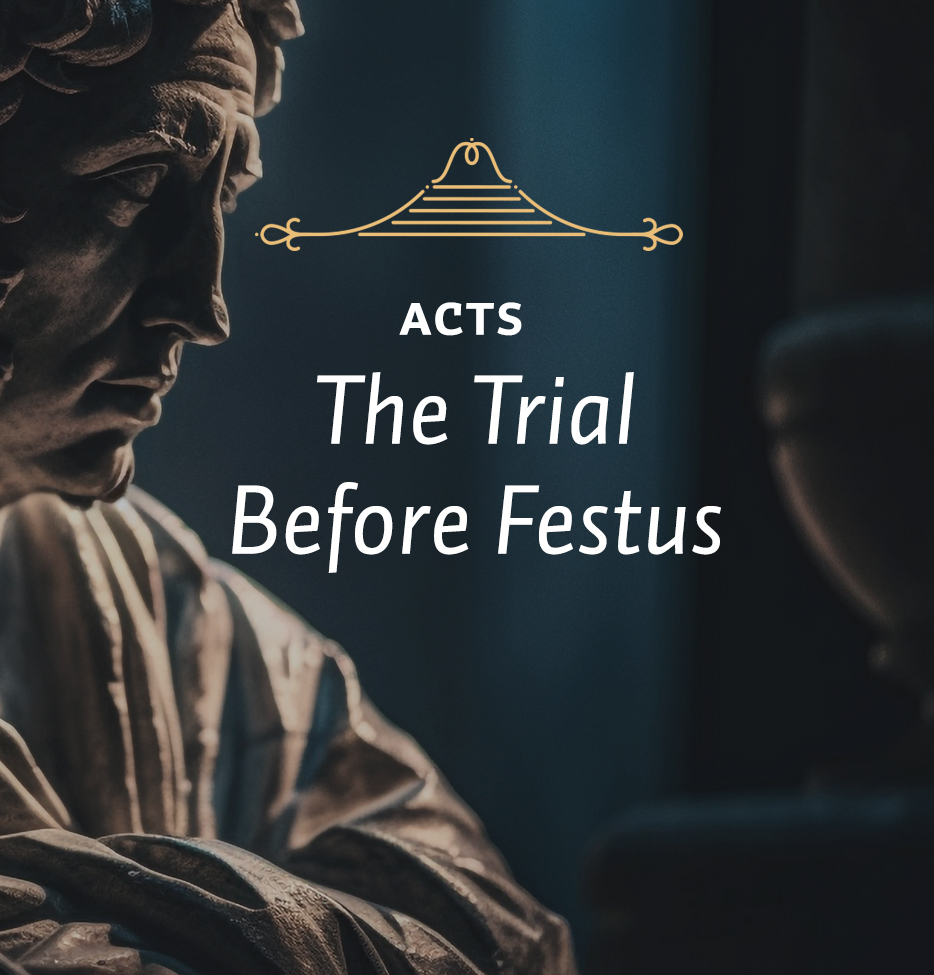Acts 25 tells of the trial of the apostle Paul before Festus. Compared to the account of the trial before Felix, which is given in chapter 24, and the account of the trial before King Agrippa, which follows, this narrative is relatively brief, no doubt because what happened here was of less significance for Paul and also because most of what happened has already been covered in the earlier story. In some ways, it is only a repetition of the charges and responses, but before another judge.
Yet it is worth looking at the different characters in this trial with some care. There are three individuals or bodies of people: the accusing Jews; the judge Festus, who was quite different from Felix who preceded him; and the apostle Paul.
It is interesting to study the Jews in this setting because they illustrate what I would call the corrupting effects of religion when it is not actually in contact with God. We tend to look upon religion as a good thing. We say, “Even if a person isn’t really born again, even if she or he doesn’t really trust God, isn’t it at least better to be religious than not religious?” That is not necessarily the case. It can be. But religion can also be very corrupting. This is because, if the life of God is not actually present in the worshiper; that is, if the person is not regenerate and therefore is not growing in holiness and grace, then his religion can become a mere veneer, hypocrisy, and can be used as an excuse merely for doing what is obviously evil behavior.
History teaches that some of the worst things that have ever been done have been done by people who claimed they were doing the will of God, that is, by religious persons.
These Jewish leaders wanted to have Paul transferred to Jerusalem for trial. But their real reason was that they “were preparing an ambush to kill him along the way” (v. 3). Here were religious leaders, the heads of the most enlightened nation in the history of the human race, plotting murder. You would think that the Decalogue alone would have kept them from it. The Ten Commandments say, “You shall not murder” (Exod. 20:13). They might have pleaded that these were unusual circumstances, that Paul was actually guilty of a crime requiring death and, therefore, that they had to act in an unorthodox manner to secure it. But even if this could be accepted, they were still violating their own criminal laws, which provided rigorous safeguards for anyone accused of a capital offense. We would say, to use our own terminology, they were doing everything possible to avoid due process of law. The irony is that they were supposed to be the upholders of the law.
In the Jewish system, these were not just secular leaders. They were also the religious leaders of the people. The secular law and the religious law were one. Yet here they were, willing to turn their backs on their own laws in order to secure the death of one they obviously hated.
Moreover, we see a growth of corruption. Earlier in Acts, where the plot to murder Paul was first launched, we find that it was the zealots who were responsible. These had taken an oath not to eat or drink until they had killed Paul. The leaders were not of this group. They merely cooperated with the zealots, asking the commander to bring Paul to their court and look the other way when the zealots attacked him. They would have protested their utter innocence. But now, in chapter 25, we find that they are initiating the very thing they were only tangentially involved in earlier.
This is how wickedness spreads, and it is why we have always to be on guard against it. It is easy for religious people to go astray and then claim God’s authority for their disobedience.






